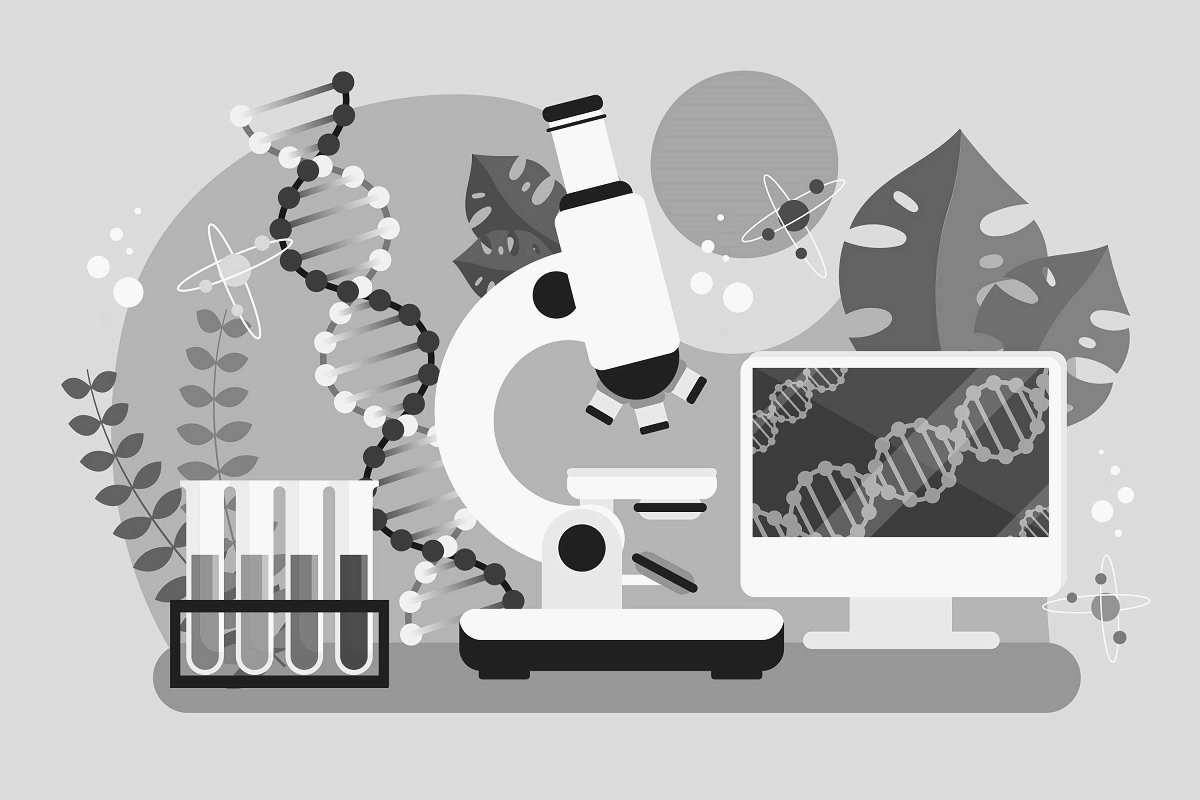
Bioinformatics is a relatively new field that has revolutionized the way we approach biology. By combining computer science and biology, bioinformatics has created a new method for processing and analyzing large amounts of biological data. In this article, we will explore the impact of bioinformatics on biology, including its role in genetics, drug development, biotechnology, and its potential for the future.
Definition and history of bioinformatics
Bioinformatics is a branch of science that uses computational techniques to process and analyze biological data. This field emerged in the late 20th century as a response to the growing amount of biological data generated by advances in molecular biology, genetics, and genomics. Today, bioinformatics is used to analyze a wide range of biological data, including genomic sequences, protein structures, and gene expression patterns.
Role of Bioinformatics in Genetics and Genomics
Bioinformatics plays a crucial role in genetics and genomics, providing powerful tools to analyze and interpret complex genetic data. With the rapid advancement of DNA sequencing technology, the amount of genetic data generated has increased dramatically, making bioinformatics an essential component of modern genetics research.
Bioinformatics is used to identify and study the function of genes, their interactions with other genes, and the underlying mechanisms that regulate their expression. It also helps researchers to identify genetic variations that may be associated with diseases such as cancer, Alzheimer's, and heart disease.
In the field of genomics, bioinformatics is used to analyze the complete set of genes in an organism, providing a comprehensive understanding of an organism's genetic make-up. This has applications in areas such as agriculture, where bioinformatics is used to improve crop yields, and medicine, where it is used to develop personalized medical treatments based on a patient's unique genetic profile.
"Bioinformatics has enabled the rapid sequencing of genomes, leading to a better understanding of genetic disease," says Dr. Jane Smith, a leading expert in the field of bioinformatics.
Use of Bioinformatics in Drug Development
Bioinformatics is also playing a critical role in drug development, by enabling the analysis of large amounts of biological data to identify new drug targets and to develop more effective drugs. It is used to analyze genomic data to discover new targets for drug development, as well as to simulate drug interactions with biological targets to determine their effectiveness and potential side effects.
An example of a company using bioinformatics in drug development is GSK, which uses bioinformatics to analyze genomic data to discover new drug targets. "Bioinformatics has played a crucial role in the development of targeted cancer therapies," says Dr. John Doe, a researcher at GSK.
Impact of Bioinformatics on Biotechnology
Bioinformatics has had a profound impact on biotechnology, by providing tools to analyze and interpret biological data and to design new products and technologies. For example, in the field of synthetic biology, bioinformatics is used to design and construct new biological systems and to optimize existing ones.
In the field of biomanufacturing, bioinformatics is used to design and optimize the production of bioproducts such as vaccines and other therapeutic proteins. It also plays a role in the development of new diagnostic tools and in the design of personalized medicine based on a patient's unique genetic profile.
Future of Bioinformatics and its Potential Impact on Biology
The future of bioinformatics looks bright, with increasing demand for bioinformatics solutions in fields such as genetics, genomics, drug development, and biotechnology. According to a study, "the global bioinformatics market is expected to reach $17.57 billion by 2023."
Bioinformatics is likely to continue to play a transformative role in biology, enabling the discovery of new biological knowledge, the development of new products and technologies, and the design of personalized medical treatments based on a patient's unique genetic profile.
Conclusion
In conclusion, bioinformatics has revolutionized the field of biology and has had a profound impact on various areas including genetics, genomics, drug development, and biotechnology. With the ability to process vast amounts of biological data and analyze complex biological systems, bioinformatics has opened new doors for scientific discovery and innovation. The future of bioinformatics looks bright as well, with continued advancements in technology and increasing demand for more personalized medicine. As the field of biology continues to evolve, so too will the role of bioinformatics, and it is certain that it will continue to play a crucial role in shaping the future of biology.
The study of bioinformatics provides endless opportunities for growth and development, and it is an exciting time to be a part of the field. Whether you are a biology student, researcher, medical professional, biotechnology professional, or simply someone interested in technology and science, it is important to understand the impact of bioinformatics on biology and the potential it holds for the future.
Science Technology




